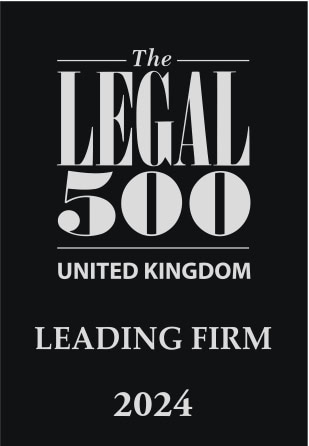F&F LLP UKRE Team’s Jargon Buster: Making property phrases easier
The world of property conveyancing in England and Wales is packed with complex legal terminology that can sometimes feel overwhelming for even the most prepared buyer or seller. To help, the UK Real Estate team at F&F LLP has created this jargon buster, a plain-English guide that breaks down the most commonly used conveyancing terms.
Boundaries
Legal boundaries are what you own according to HM Land Registry. They are marked in red on the Title Plan. Physical boundaries might differ and include fences, walls, or hedges.
Class of Title
When a property is registered, a class of title is allocated by HM Land Registry.
- Absolute Title: The most comprehensive and best form of ownership
- Possessory Title: Given when ownership documents are lost
- Qualified Title: Issued when there is a known defect
Contract of Sale
A legally binding agreement outlining such things as the property being sold, purchase price, date of completion, and conditions of sale. Becomes binding once exchanged.
Conveyancing
The process of legally transferring property from one party to another. Usually handled by a solicitor or licensed conveyancer.
Conveyancing Searches
Legal checks requested on behalf of the buyer. They reveal issues like flood risk or planning restrictions that could affect property use.
Covenants
Legal promises attached to property:
- Positive Covenants require actions, such as maintaining a fence
- Restrictive Covenants prohibit certain actions, like parking a caravan
Date of Completion
The final stage when payment is made and legal title is transferred to the buyer. This is also when the buyer receives keys and takes possession.
Easements
Legal rights that allow property access or use, for example, rights of way or utility access.
Freehold
Full ownership of a property and its land indefinitely.
HM Land Registry
The organisation that administers the recording of land ownership, and what legal matters affect land.
Indemnity
Insurance policies that cover risks arising from legal issues like missing documents or breaches of covenants.
Land Transaction Tax (LTT)
Tax applicable on purchases in Wales over a set value.
Leasehold
A way to own property, but which diminishes over time.
Stamp Duty Land Tax (SDLT)
Tax applicable on purchases in England and Northern Ireland over a set value.
Law Society Protocol Forms
- TA6: Property Information Form completed by the seller
- TA7: Leasehold Property Information Form completed by the seller
- TA8: New Home Information Form for newly built properties
- TA10: Fittings and Contents Form detailing included items
Mortgage
A loan secured against a property. Non-repayment could lead to repossession.
Overriding Interests
Legal rights that are not registered but still affect property, like an occupier not named in ownership documents.
Pre-Contract Enquiries
Pre-contract enquiries are formal questions raised by the buyer’s solicitor to the seller’s solicitor before contracts are exchanged. Their purpose is to gather essential information about the property that may not be evident from the title documents or initial paperwork.
Key points:
- They help uncover potential legal, structural, or practical issues.
- Common topics include planning permissions, building regulations, disputes, boundaries, utilities, and fixtures.
- They are part of the buyer’s due diligence and help ensure the buyer knows exactly what they’re committing to.
- The process is governed by the principle of “buyer beware,” meaning the buyer must investigate the property thoroughly before purchase.
Conveyancing Searches
Conveyancing searches are legal and environmental checks carried out by the buyer’s solicitor with various authorities. These searches aim to reveal any risks or restrictions that could affect the property’s value, use, or enjoyment.
Typical searches include:
- Local Authority Search: Reveals planning permissions, building regulations, and road schemes.
- Water and Drainage Search: Confirms connections to mains water and sewer systems.
- Environmental Search: Identifies flood risk, land contamination, and subsidence.
- Chancel Repair Liability Search: Checks if the property is liable for church repairs.
- Mining or Ground Stability Searches: Relevant in former mining areas to assess subsidence risk.
Searches are especially important when buying with a mortgage, as lenders require them to protect their investment. Even cash buyers are strongly advised to carry them out to avoid hidden liabilities.
Survey
A survey is a detailed inspection of a property’s physical condition, carried out by a qualified surveyor. It is separate from legal checks (known as conveyancing searches & enquiries) and focuses on the structure, safety, and overall state of the building. It is done after an offer is accepted but before exchange of contracts. It’s not legally required, but strongly recommended, especially for older homes, listed buildings, or those with visible issues.
Types of Property Surveys:
- Mortgage Valuation: A basic check for the lender to confirm the property’s value.
- Condition Report: Highlights urgent issues but offers limited detail.
- Home Buyer Report: Covers structural concerns, damp, and maintenance advice, suitable for most standard properties.
- Building Survey: The most comprehensive option, ideal for older or unusual properties. Includes detailed analysis and repair recommendations.
Proprietor/Proprietorship
The individual or company legally registered as the owner.
Rentcharge
An annual fee payable by some freeholders to third parties. May have historical or estate-related origins.
Registration
Process of updating HM Land Registry to show the new owner after purchase.
Tenancy
Right to occupy a property.
- Joint Tenancy: Equal ownership; surviving owners inherit
- Tenants in Common: Owners may hold unequal shares; inheritance is governed by wills or rules of intestacy.
Title Plan
A map prepared by HM Land Registry showing visually what the property is comprised of.
Transfer Deed (TR1/TP1)
Documents transferring legal ownership.
We remain on hand to support clients with all English residential conveyancing and commercial property matters.
For tailored advice and further assistance, please contact Anna Douglass, Alastair Hargreaves, Caren Vidamour, or Hannah Damant.



















